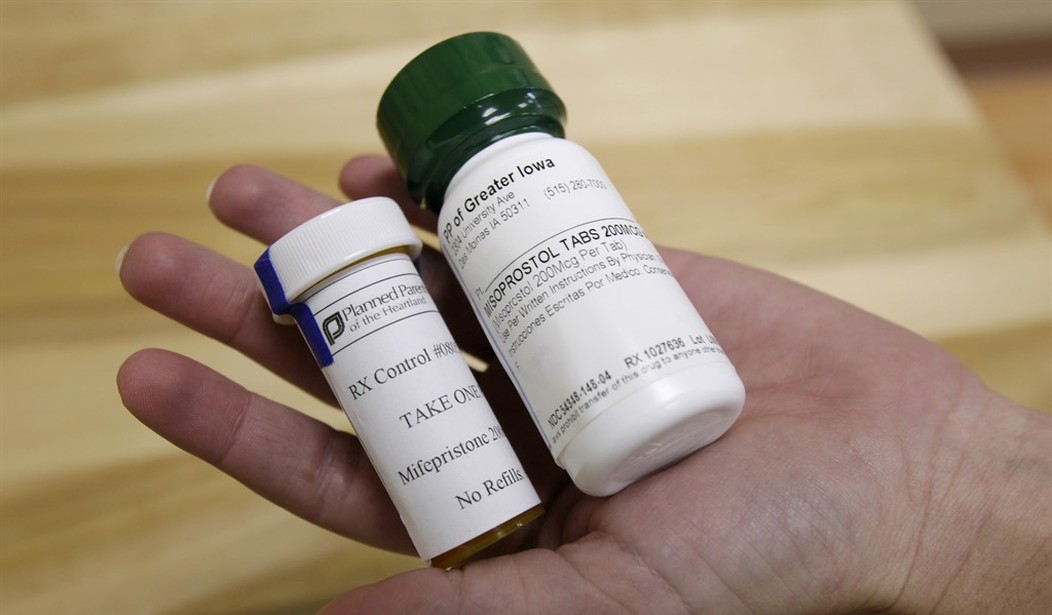By its very definition, medicine saves lives by treating or preventing diseases. But now, some in the media are distorting its meaning to include abortion – the ending of another’s life.
On April 28, The New York Times published a piece examining, “Abortion by Telemedicine.” In the story, health and science writer Pam Belluck cited several women who obtained abortions through TelAbortion, a telemedicine program that provides video consultations with abortion providers so that pregnant women can take abortion pills on their own without having to visit an actual clinic. Both TelAbortion – and Belluck – recognized the pills that cause abortion as “medications.”
One of the women interviewed for the piece, Ashley Dale, allowed the Times to sit in on her video consultation.
“The doctor explained that two medicines that would be mailed to Ms. Dale would halt her pregnancy and cause a miscarriage,” Belluck described.
Belluck’s wording mirrored the abortion industry’s embrace of euphemistic language surrounding abortion. But there’s a difference: Medicine saves human lives; abortion ends them. Miscarriage isn’t a choice; abortion is.
In order to distinguish from surgical abortion, many in the media refer to “medication abortion” as an abortion administered by pill. But only recently have major outlets begun using phrases such as “abortion medication” to call abortion itself a type of medicine.
Recommended
Belluck described what happens in this particular type of abortion.
“[D]octers explain that most women do not experience discomfort from mifepristone, which blocks a hormone necessary for pregnancy to develop,” she wrote. “Cramping and bleeding, resembling a heavy period, occur after the expulsion of fetal tissue caused by the second drug, misoprostol, which is taken up to 48 hours later.”
That’s not how all doctors describe it. Dr. Anthony Levatino, an obstetrician-gynecologist who once performed more than 1,200 abortions, partnered with pro-life group Live Action in 2016 to detail abortion procedures. Medical abortion, he said, consists of “two steps.”
“At the abortion clinic or doctor’s office, the woman takes pills which contain Mifepristone,” or RU-486, he began. RU-486 blocks the hormone progesterone and causes the “lining of the mother’s uterus” to break down, “cutting off blood and nourishment to the baby.”
In the second step, the woman takes Misoprostol, or Cytotec, a day or two later. Taken together, RU-486 and Misoprostol “cause severe cramping, contractions, and often heavy bleeding to force the dead baby out of the woman’s uterus,” he added.
If the abortion takes place at nine weeks, he said, her baby “will be almost an inch long” and she might even be able to distinguish his or her fingers and toes.
Even so, the New York Times piece regularly referred to these abortion pills as “medication.” One photo caption showed “Ashley Dale taking medications that were mailed to her.”
At one point, Belluck described how one woman went on an engagement photo shoot with her fiancé after “taking the first medication” and then “took the second medication that evening.”
She continued to use the phrase “medication” – and even the “two-medication regimen” – in her piece.
“Abortion through medication, first approved by the F.D.A. in 2000, is increasingly becoming women’s preferred method,” she wrote.
Or is it? Several of the women appeared to choose abortion because they felt like it was their only choice.
Dale, the first woman Belluck mentioned in her piece, “said she would love to have another baby,” but “circumstances involving an estranged boyfriend had made the choice clear.”
Another woman, Lee, “decided to terminate the pregnancy because she had recently cut ties with her boyfriend after he was arrested on drug charges.”
And Leigh, who self-identified as pro-life, turned to abortion because she “has depression, which became so severe after she had a baby two years ago that she sometimes felt suicidal,” wrote Belluck.
In a follow-up call after her abortion, Leigh said “she felt compelled to abort ‘no matter how much I hate myself,’” Belluck reported. Even now, when she sees another baby, she asks herself, “Did I make the wrong choice?”
“I wanted to keep my baby, but I just couldn’t,” she added.
Abortion and medicine are opposing terms; not interchangeable ones. Medicine promotes the welfare of human beings and saves lives every day. Abortion destroys a life that, from the moment of conception, contains a unique set of DNA. Instead of being a disease to fight, the unborn child is a patient to protect.
But here’s one thing that even the media can agree on: An unborn baby’s heart often begins beating before a mother even knows she’s pregnant. Abortion stops it.
























Join the conversation as a VIP Member